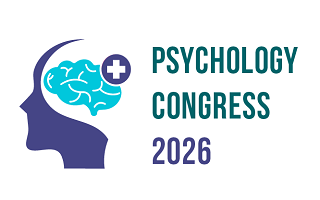3rd International Congress on
Psychology & Behavioral Sciences
March 26-27, 2026 | Osaka, Japan

Address: 5 Chome-3-68 Nakanoshima, Kita Ward, Osaka, 530-0005, Japan.
Psychology Congress 2026

Zayed University, UAE
Abstract:
The integration of artificial intelligence into mental health care has introduced a transformative yet controversial trend: individuals increasingly rely on AI-driven platforms such as chatbots and virtual companions for emotional support and therapeutic guidance. This shift prompts a critical exploration of the psychological mechanisms behind such behavior and its implications for the future of therapy.
Why do individuals feel more comfortable disclosing personal struggles to AI than to human therapists? What psychological needs are fulfilled through these interactions, and what risks accompany such dependence? Recent studies suggest that AI-based therapy can significantly reduce depression and loneliness among young adults, particularly through cognitive-behavioral frameworks (Wang et al., 2025). Furthermore, research shows that individuals are often more willing to disclose sensitive emotions and experiences to virtual agents than to humans, as the absence of judgment fosters greater openness (Lucas et al., 2014). However, despite these advantages, significant challenges remain, including concerns about data privacy, potential biases in AI algorithms, lack of human empathy, and the risk of overreliance on technology in sensitive mental health contexts. (Li et al., 2024).
Drawing on emerging studies in human-computer interaction and digital psychology, this paper examines why users perceive AI as a safe and accessible alternative to traditional therapy. Key factors include the appeal of anonymity, the absence of judgment, and the convenience of 24/7 availability. While evidence suggests that AI-based tools can reduce feelings of loneliness, provide coping strategies, and enhance accessibility to mental health resources, significant challenges remain. The paper argues that AI should not be seen as a replacement for professional therapy but rather as a complementary tool that can bridge gaps in mental health accessibility, especially in underserved populations.
By critically analyzing the psychological drivers of AI-therapy adoption, this study seeks to contribute to ongoing debates about the balance between technological innovation and human-centered care in the mental health field.
Biography:
Sara Husain Alhosani is a UAE-based academic and professional affiliated with Zayed University in Abu Dhabi. She specializes in psychology and education, contributing to research and initiatives that support student development, mental health awareness, and community engagement in the UAE.
